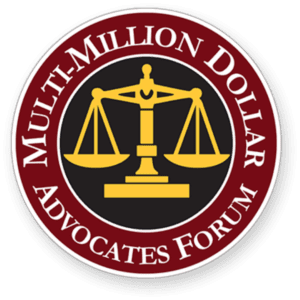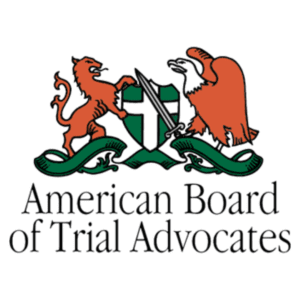
Out-of-service (OOS) violations are critical safety infractions identified by the Federal Motor Carrier Safety Administration (FMCSA).
They mandate the immediate cessation of vehicle or driver operations.
In 2023, over 882,000 OOS violations were recorded nationwide, underscoring the importance of compliance for public safety.
At Sam Aguiar Injury Lawyers, our attorneys routinely scrutinize such infractions, employing our insights to formulate strong cases against irresponsible commercial drivers and motor carriers.
Acknowledging the serious nature of these infringements is essential for maintaining a compliant and secure fleet.
What Are DOT Out-of-Service Violations?
DOT out-of-service violations are critical safety breaches that temporarily compel a driver or vehicle to cease operations.
These service violations aim to preemptively sideline vehicles and drivers that pose a risk, thereby preventing accidents and preserving roadway safety.
Common consequences of OOS violations include immediate removal from service, substantial fines, operational disruptions, and potential legal implications.
Common Types of DOT Out-of-Service Violations
Driver-Based Violations
Hours of Service (HOS) violations or falsification of logs.
Drug or alcohol testing refusal or failure
Expired medical certificates or suspended licenses
Vehicle-Based Violations
Brake system defects
In 2023, brake systems accounted for 25.4% of all vehicle out-of-service violations.
During Brake Safety Week, 12.6% of the 18,875 inspected commercial motor vehicles were out of service for brake-related violations.
These violations include insufficient tread depth and damaged tires.
Tire blowout accidents can occur as a result, causing serious injuries and even death to other motorists on the road.
Inoperative lights and reflectors
This includes defective brake lights or turn signals that lead to lighting violations.
Documentation and Compliance Issues
Errors in documentation, failure to secure cargo properly, and non-adherence to hours of service regulations are additional common offenses that may result in severe fines and disruptions in operations.
Missing or falsified logbooks
Cargo securement failures
Lapsed inspection reports or maintenance logs
Other Issues
Insurance and Financial Responsibility
Carriers are required to maintain certain levels of liability insurance.
Failure to meet these requirements can lead to therevocation of their license.
Substance Abuse Violations
Violations related to drug and alcohol testing regulations, including failure to enroll drivers in the Drug and Alcohol Clearinghouse, can result in penalties up to and including revocation.
Chameleon Carriers
If a carrier attempts to evade FMCSA scrutiny by reopening under a new name after losing its authority, the FMCSA may impose harsher penalties and permanently bar the company from operating.
Post-Violation Procedures
Upon issuance of an OOS order, the following steps typically occur:
Immediate removal of the vehicle or driver from service.
Documentation of the violation in FMCSA records.
Assessment of fines based on the specific infraction.
Requirement for the carrier to address and rectify the violation.
Potential revocation of operating authority for repeated or severe violations.
How We Use OOS Violations in Litigation
Out-of-service violations can serve as compelling evidence in litigation.
Our team meticulously evaluates compliance with FMCSA guidelines to establish negligence, hold the motor carrier accountable, and show punitive conduct.
Financial Penalties for OOS Violations
Violations of out-of-service orders can result in substantial economic penalties.
For instance, operating a vehicle under an OOS order can lead to fines up to $32,208.
Hazardous materials violations can attract penalties exceeding $96,000.
The FMCSA’s 2024 adjustment to civil penalty amounts specifies that operating a commercial motor vehicle in violation of an out-of-service order can result in fines up to $29,980 per day.
Operational Consequences for Carriers
Beyond financial penalties, OOS violations can lead to significant operational disruptions:
Delivery delays and contract breaches.
Client attrition due to reputational harm.
Increased scrutiny from federal regulators.
Legal liability in civil litigation.
If a motor carrier does not resolve out-of-service orders promptly, the FMCSA may escalate penalties and eventually revoke their authority to operate.
Carriers with persistent safety violations during audits or inspections may receive an Unsatisfactory Safety Rating, which can result in suspension or revocation of their operating authority.
Best Practices for Compliance
Preventive Maintenance:
Conduct daily pre- and post-trip inspections.
Schedule regular maintenance checks.
Utilize third-party inspections to verify system integrity.
Documentation:
Maintain up-to-date repair logs and inspection sheets.
Ensure all driver certifications and licensing documentation are current.
Driver Education:
Provide ongoing training on HOS compliance, vehicle checks, and FMCSA updates.
Monitor compliance and enforce disciplinary actions when necessary.
Regulatory Monitoring:
Stay informed on FMCSA changes, such as ELD regulations or drug/alcohol testing protocols.
Engage with industry associations for updates and best practices.
For Injury Victims
Prior OOS violations can play a pivotal role in litigation for individuals injured in crashes involving commercial carriers.
These records often help establish that a carrier failed to meet its legal duty of care.
Our firm leverages OOS data to:
Establish negligence and causation.
Seek maximum compensation for victims.
Hold unsafe carriers accountable through litigation or settlement.
Frequently Asked Questions
What is a DOT out-of-service violation?
A serious infraction that mandates immediate removal of a driver or vehicle from service due to unsafe conditions or non-compliance with federal safety regulations.
How much are the fines?
Fines can range from $3,740 to more than $96,000, depending on the type of violation and whether hazardous materials are involved.
Do OOS violations impact injury claims?
Yes. They provide evidence of negligence, especially if the violation is related to the cause of the crash.
Can a carrier lose its license over repeated violations?
Yes. Repeated or unresolved OOS violations can lead to FMCSA revocation of a carrier’s operating authority.
How can companies prevent out-of-service violations?
Companies should implement preventive maintenance, conduct regular inspections, and maintain accurate documentation to prevent out-of-service violations.
Additionally, ongoing education and compliance with FMCSA regulations are essential for ensuring safety and avoiding violations.
Contact Us for Help After a Truck Crash
If you’ve been injured in a commercial vehicle collision, our team will investigate DOT compliance failures and build a case to hold all responsible parties accountable.
Call 24/7 at 502-888-8888












